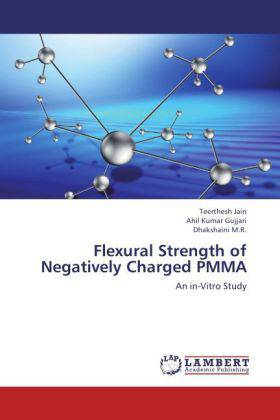
Je cadeautjes zeker op tijd in huis hebben voor de feestdagen? Kom langs in onze winkels en vind het perfecte geschenk!
- Afhalen na 1 uur in een winkel met voorraad
- Gratis thuislevering in België vanaf € 30
- Ruim aanbod met 7 miljoen producten
Je cadeautjes zeker op tijd in huis hebben voor de feestdagen? Kom langs in onze winkels en vind het perfecte geschenk!
- Afhalen na 1 uur in een winkel met voorraad
- Gratis thuislevering in België vanaf € 30
- Ruim aanbod met 7 miljoen producten
Zoeken
Flexural Strength of Negatively Charged PMMA
An in-Vitro Study
Teerthesh Jain, Ahil Kumar Gujjari, Dhakshaini M.R.
Paperback | Engels
€ 59,95
+ 119 punten
Omschrijving
Synthetic acrylic resins have a long, clinically proven history of use for dentures since they exhibit adequate physical, mechanical, and esthetic properties; however, they are susceptible to microbial adhesion, leading to denture stomatitis, which is the most common infectious disease affecting the palatal mucosa, and is highly prevalent in denture wearers . Polymeric biomaterials have an inherent advantage in their capacity for modification. Negatively charged denture base materials have been suggested to prevent adhesion of Candida and to reduce the development of denture induced stomatitis. Incorporation of metahacrylic acid in PMMA denure base resins prevents adherence of Candida albicans.Taking all the above factors into consideration the present study, was done to compare and evaluate flexural strength of negatively charged polymethylmethacrylate (PMMA) with different concentrations of methacrylic acid.
Specificaties
Betrokkenen
- Auteur(s):
- Uitgeverij:
Inhoud
- Aantal bladzijden:
- 88
- Taal:
- Engels
Eigenschappen
- Productcode (EAN):
- 9783659191084
- Verschijningsdatum:
- 6/08/2012
- Uitvoering:
- Paperback
- Afmetingen:
- 152 mm x 229 mm
- Gewicht:
- 141 g

Alleen bij Standaard Boekhandel
+ 119 punten op je klantenkaart van Standaard Boekhandel
Beoordelingen
We publiceren alleen reviews die voldoen aan de voorwaarden voor reviews. Bekijk onze voorwaarden voor reviews.









